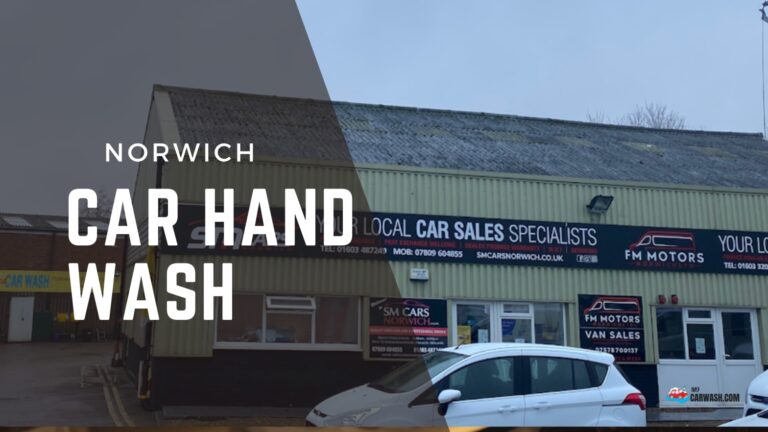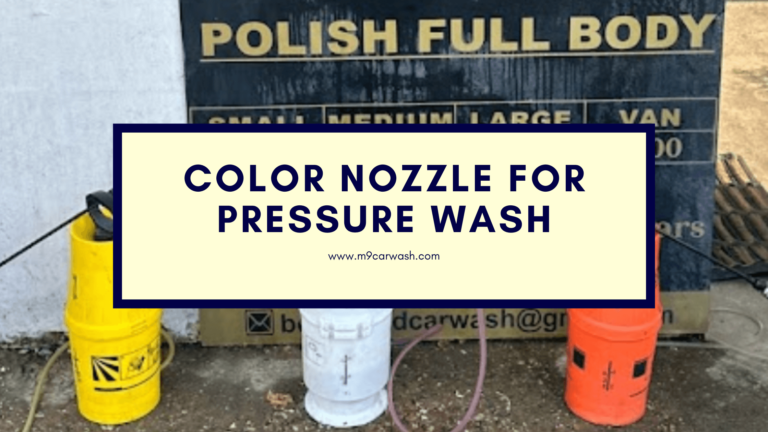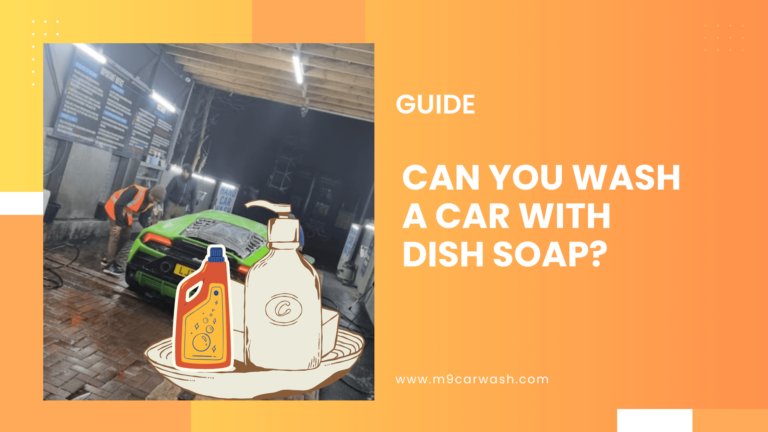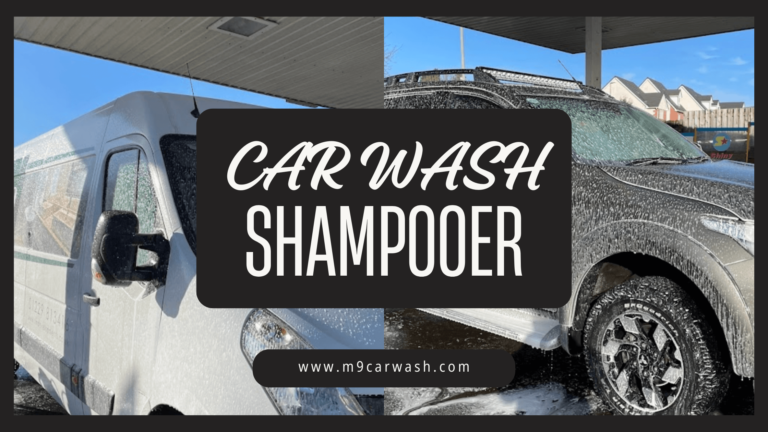A well-water car wash softener at the pump helps reduce hard water minerals, preventing water spots and soap residue on your car. It ensures a cleaner rinse and protects your car’s paint by using softened water directly from the well.
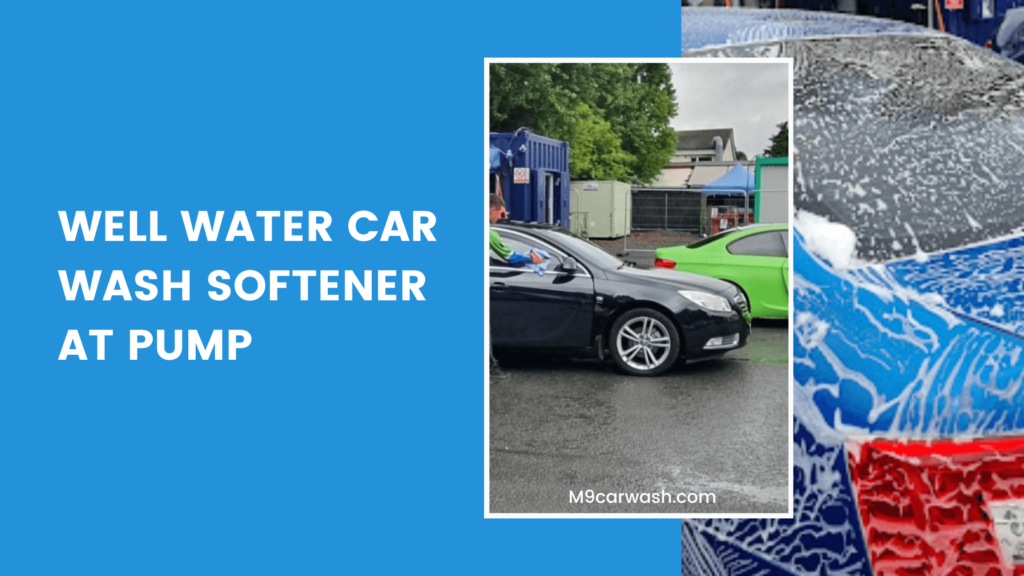
Water Softening Theory for Car Washes
Water softening plays a crucial role in maintaining the quality of water used during car washes. It helps prevent mineral buildup, which can lead to problems in washing and finishing.
The Science Behind Water Hardness
Water hardness is primarily caused by calcium and magnesium minerals present in well water. When these minerals dissolve in water, they create hard water. The hardness of water is often measured in grains per gallon (GPG) or parts per million (PPM).
For example, water with 1 GPG of hardness contains about 17.1 PPM. This hardness can have various effects, such as leaving spots on washed cars and reducing the effectiveness of soaps and detergents.
Testing the mineral content of your water helps you determine how much softening is needed. High total dissolved solids (TDS) levels can indicate hard water, which warrants the installation of a softening system to manage these issues effectively.
Principles of Water Softeners
Water softeners work on the principle of ion exchange. This process removes calcium and magnesium ions from water and replaces them with sodium ions. The main components of a water softener are a resin tank and a brine tank.
- Resin Tank: Hard water flows into this tank, where resin beads capture hardness minerals.
- Brine Tank: This tank holds salt that is used to regenerate the resin, allowing the system to continue functioning effectively.
Using a properly sized softener ensures that it can handle your car wash’s flow rates. A softening system can significantly improve water quality and washing efficiency.
Types of Water Softening Systems
There are several types of water-softening systems.
- Traditional Ion Exchange Softeners: These are the most common, using salt for regeneration and effectively removing hardness.
- Reverse Osmosis Systems: These systems filter out nearly all impurities, including minerals that cause hardness.
- Dual-Tank Softeners: These systems allow one tank to be in use while the other regenerates, ensuring a continuous supply of soft water.
Each system has its pros and cons.
Traditional systems might require regular salt refills, while reverse osmosis systems can be more efficient in removing various contaminants, improving water quality overall.
Benefits of Soft Water in Car Washing
Using soft water in car washing offers various advantages.
- Spot-Free Finish: Soft water reduces spots and streaks on vehicles, leading to a cleaner, shinier appearance.
- Effective Soap Use: Soap lathers better in soft water, making it easier to remove dirt and grime while using less product.
- Less Maintenance: It minimizes mineral buildup in equipment, extending the lifespan of pumps and hoses.
Water Softening Equipment and Installation
Choosing the right equipment and understanding the installation process for water softening systems are key to ensuring clean and soft water for car washes using well water.
The right setup can enhance efficiency and overall performance.
Selecting the Right Water Softener
When selecting a water softener, I consider the flow rate and capacity that meets my needs. Flow rate must match the demand of the car wash. A common size for car washes is about 20–30 gallons per minute (GPM). Sizing is crucial; I often calculate my household or business’s hardness level and water usage.
I also focus on the media inside the mineral tank. Common choices include sodium and potassium chloride. A softener with a brine tank ensures proper regeneration, which removes the hard minerals like calcium and magnesium. Many systems also offer a carbon filter to improve water quality by reducing chlorine and other contaminants.
Setting Up the Water Softening System
Installation begins with positioning the water softener unit near the water supply line. I make sure to set up the mineral tank and brine tank properly. For optimal performance, I need to connect the softener to the main water line using PVC piping. I also check the diameter of the pipes to ensure compatibility.
Next, I program the system settings, often using a digital control panel. This panel allows me to set regeneration times, which is essential for efficiency.
I also make sure to inspect all connections for leaks. Once the system is in place, I fill the brine tank with salt and run a test cycle. This helps ensure everything is functioning properly.
Maintaining Water Softening Equipment
Regular maintenance is essential for keeping my water softener efficient. I check the salt level in the brine tank every month and refill it as needed. The salt should be kept between the indicated levels to ensure proper regeneration.
I also schedule periodic maintenance every 6-12 months. This includes cleaning the resin beads in the mineral tank and inspecting seals and connections for wear. If my system includes a reverse osmosis (RO) system, I change the membranes and filters according to the manufacturer’s recommendations.
Finally, I stay alert for any changes in water quality. If I notice changes in taste or if the scale starts to build up, it’s a sign to check my system. Taking these steps helps ensure I get the best performance from my water-softening equipment.
Optimizing Car Wash Operations with Softened Water
Using softened water in car wash operations can significantly enhance efficiency, improve vehicle cleanliness, and boost customer satisfaction. The right water quality helps reduce soap use and reduces problems like spots and streaks. Here’s how to make the most of softened water for a successful car wash business.
Improving Wash Water Efficiency and Quality
Using softened water effectively improves wash efficiency. Softened water prevents hard water scale build-up, ensuring no clogs in pipes and filters. That means my wash equipment, like pumps and water heaters, runs smoothly without interruptions.
Using a single-tank softener can support the daily demands of my car wash. This setup ensures there is always enough softened water, maintaining optimal pressure for washing vehicles. Softened water also improves the effectiveness of my car wash chemicals and detergents. Low-quality water can reduce the performance of soaps, leading to increased soap use and longer wash times.
Maximizing Customer Satisfaction
Customer satisfaction often hinges on the results of a wash. Softened water plays a crucial role in delivering a spot-free finish. It helps minimize water spots on vehicles, which can arise from contaminants in hard water. I want every car to shine, and using high-quality water is the first step.
A flawless wash enhances my reputation. Customers appreciate clear, sparkling finishes, making them more likely to return. I can also offer specific services like spot-free rinses, which elevate the overall experience.
Cost-Effective Management of Softener Systems
Managing softener systems wisely helps control costs in my car wash. Regular maintenance of the filtration system can prevent costly repairs down the line. I make it a point to monitor salt levels to ensure effective softening. It’s often more economical to use a commercial reverse osmosis system for purification, as it can reduce the risk of corrosion in pipes and equipment.
By keeping an eye on performance, I can plan maintenance efficiently without disrupting operations. Investing in quality equipment, like ozone systems, can also reduce cleaning time and enhance water purity.
This approach leads to considerable savings while providing top-notch service to customers.
Best water softeners for car wash systems using well water
I recommend looking for water softeners designed explicitly for high flow rates and efficiency. Models that use ion-exchange technology are typically effective.
They remove calcium and magnesium, which cause hard water issues.
Brands like Fleck and Pentair often receive positive feedback from users in car wash settings.
How do I prevent water spots when washing a car with well water?
To avoid water spots, using softened water is key. Soft water reduces mineral deposits, which leave spots on your car.
Also, drying your car immediately after washing can help prevent spots from forming. Using a microfiber towel works well for this purpose.
Can a water softener be installed specifically for car wash purposes with well water?
Yes, a dedicated water softener can be installed just for car wash systems. This helps ensure that the water used in washing is soft, enhancing the cleanliness of your vehicle.
Consulting a plumber to assess your setup will help in finding the right system.
Using rainwater or deionized water to soften well water when washing a car
Using rainwater or deionized water can provide even better results than softened well water.
Rainwater is naturally soft and free of minerals, while deionized water has been stripped of all ions.
Both options can help reduce spots and leave a cleaner finish on your car.
Factors to consider when choosing a water softener for a well-water car wash setup
When selecting a water softener, consider flow rate, tank size, and regeneration process.
You’ll want a unit that can handle the volume of water needed for washing cars.
Also, check the maintenance requirements to ensure it fits your schedule and needs.
How can I remove hard water stains from a car after washing it with well water?
To treat hard water stains, a vinegar solution can be effective. Mix equal parts of vinegar and water and apply it to the stained areas.
Let it sit for a few minutes before rinsing.
This can help break down mineral deposits, restoring your car’s shine.

